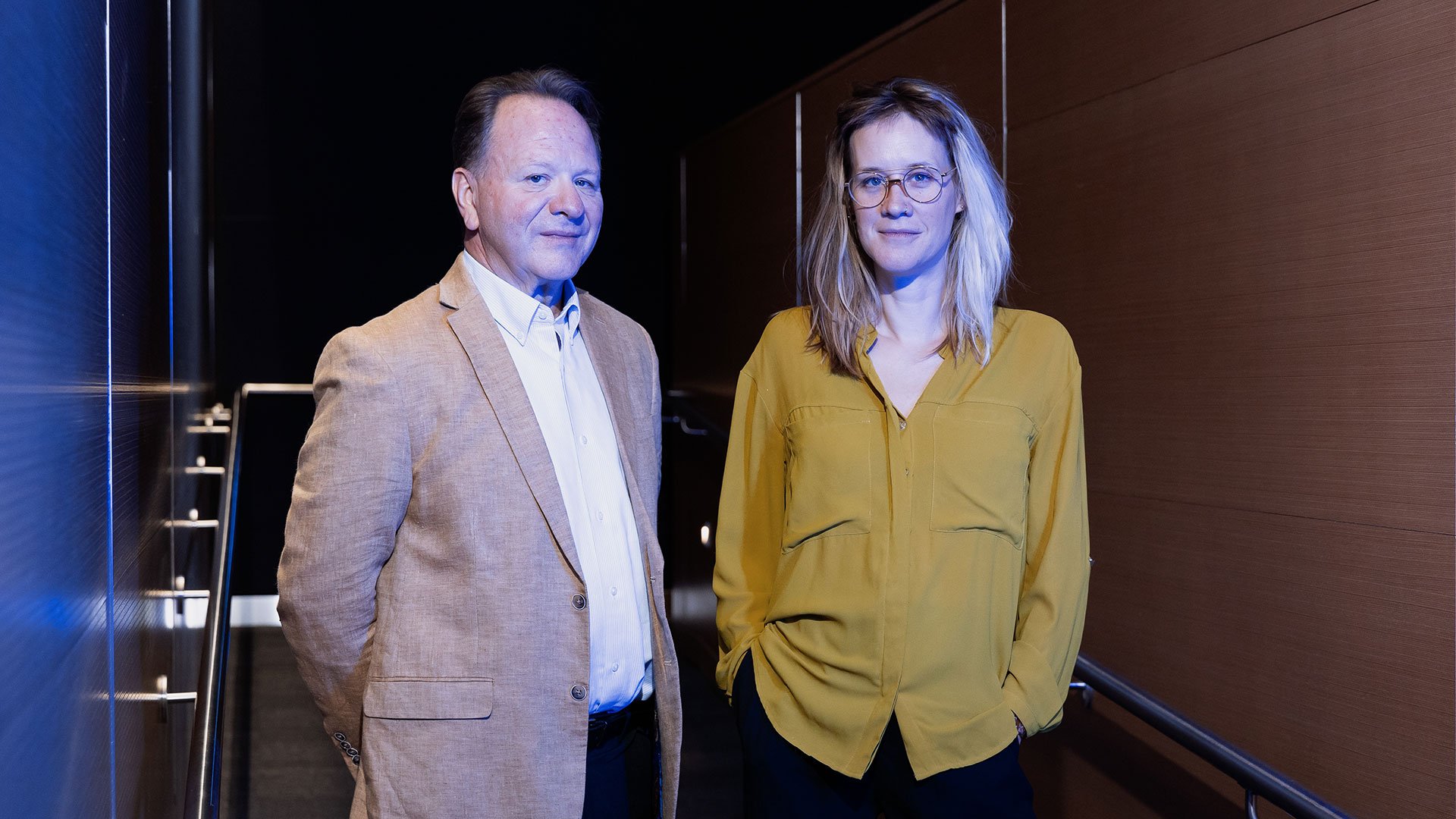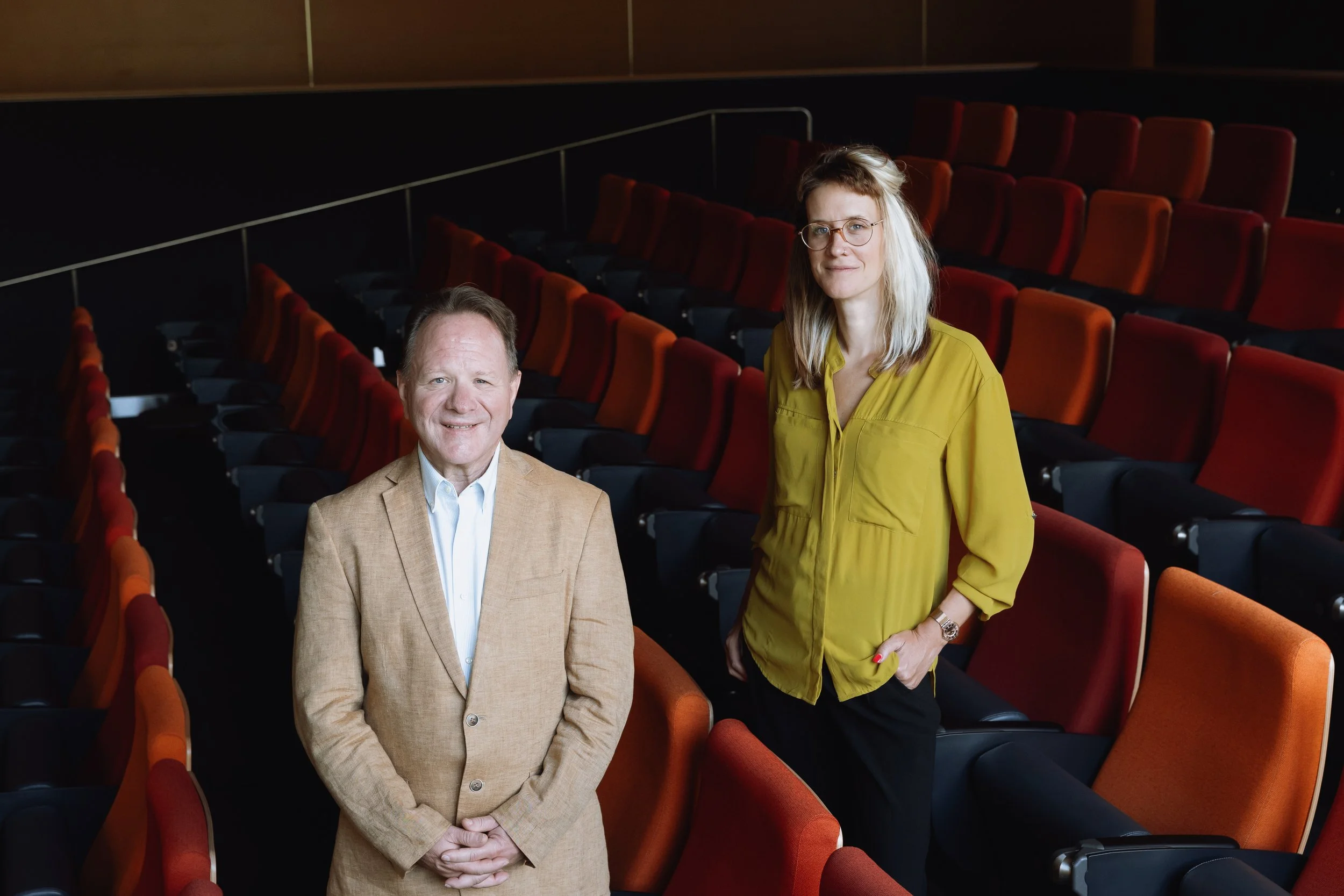
‘Alexa, Assess My Attachment Style’
Jeffrey Newport, M.D., & Kaya de Barbaro, Ph.D.
With tech like wearables and deep-learning algorithms, researchers and clinicians at The University of Texas at Austin are painting a clearer picture than ever before of how social-emotional relationships develop directly in the home.
You can’t “diagnose” good parenting. But parent-child attachment has health implications that last long into adulthood — and right now, there’s no clinically significant way to measure social-emotional development while it’s happening.
In a series of studies funded by the National Institutes of Health, researchers are looking to identify the markers that predict secure, healthy parent-child relationships. By leveraging new tech like wearable audio recorders and artificial intelligence software, they’ll capture the nuances of parent-infant interactions in real-world settings and begin to qualify how key behaviors impact attachment over time.
“The idea is if we can get tools that make it easier to identify where people are at in terms of these caregiving quality behaviors, then we could identify the families who are most at risk for maladaptive attachment relationships because they may not be responding to children’s needs consistently or sensitively, and then provide preventative interventions with those families,” says Kaya de Barbaro, Ph.D., associate professor in the Department of Psychology and primary investigator on the study.
Partnerships
- College of Liberal Arts
- Dell Medical School
Among de Barbaro’s collaborators is Jeffrey Newport, M.D., professor in Dell Medical School’s departments of Psychiatry and Behavioral Sciences and Women’s Health. Newport, the director of Women’s Reproductive Mental Health of Texas at UT Health Austin, provides clinical expertise that will allow study results to more readily translate to clinical interventions, especially for parents with existing mental health histories.
“Positive attachment is something the parent wants, but something the child desperately needs,” Newport says. “Social emotional functioning sets the stage for later functioning — if you have that secure attachment in those early relationships, kids are better adjusted, which we know from longitudinal studies. Particularly for mothers who have prior trauma or mental health issues, this can present a really difficult personal hurdle that we can’t support as much as we’d like to right now.”
From In-Home Tech to Clinical Intervention
The study involves sustained audio recording within participants' homes, allowing for the collection of rich, contextual data over time. This continuous monitoring, taken 24 hours at a time, captures the everyday interactions between mothers and their infants, from soothing sounds and laughter to moments of distress. By analyzing massive amounts of audio data with AI tools that can pick up on key patterns, the team aims to identify correlations that contribute to healthy attachment styles.
“In pretty much every big study you see about family dynamics over the decades, it’s a situation where we invite families into the lab and spread out a blanket and say, ‘Act natural,’ but how natural is that?” de Barbaro says. “We’ve gotten some critical insights from those types of studies, but it’s a 10-minute interaction. Getting the chance to peek at families’ everyday lives is a new and enormous privilege, and our study participants control what they record and share. In the future, we’d want to look ahead to supporting families in a way where they could proactively say, ‘Hey, I could really use some help here,’ and opt into an in-home assessment that allows for more intervention, if needed.”

